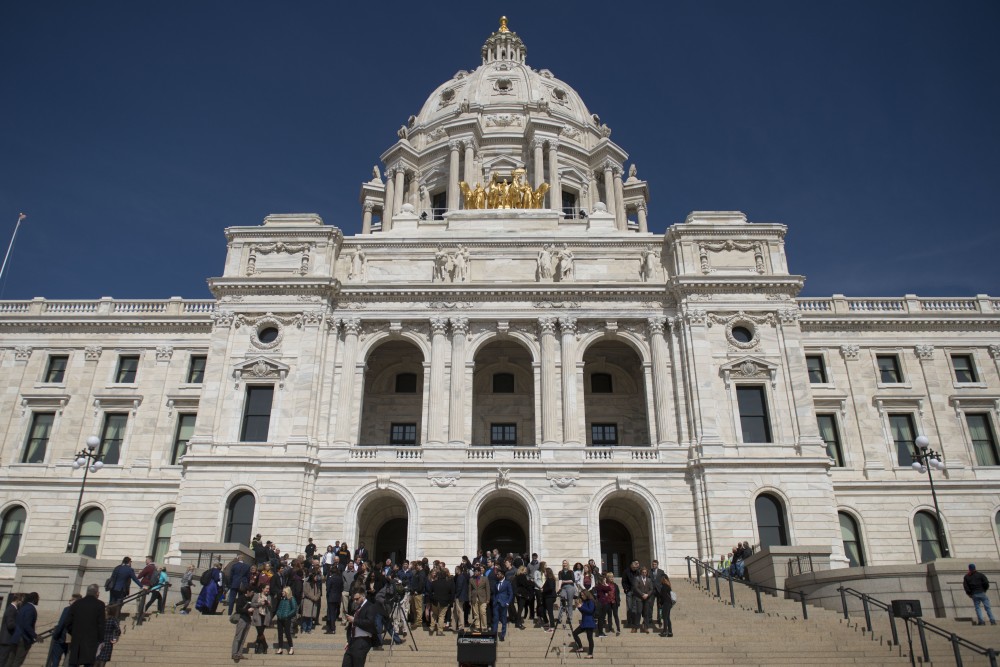As the final weeks of the regular legislative session near, Minnesota DFL senators are pushing for a statewide infrastructure bill that would fund University of Minnesota projects.
The bill includes around $2.3 billion in total capital bonding, including around $224 million of the University’s $317.2 million request. While the legislative session has been consumed by COVID-19 relief efforts in recent months, the Legislature needs to begin to move forward with a bonding bill, said Senate Minority Leader Susan Kent.
“Passing a bonding bill will help address the need for infrastructure improvements and create the local jobs and economic stimulus our state needs right now,” Kent said at a Wednesday press conference via Zoom.
Of the University’s allocation in the recent proposal, $125 million will go toward maintenance projects across the five system campuses, also known as Higher Education Asset Preservation and Replacement, or HEAPR.
The University’s requests for three individual projects would be fully funded in the proposal: $29.2 million would go toward the Child Development Building renovation and construction on the Twin Cities campus, $65.6 million to Chemistry Undergraduate Teaching Laboratory construction on the Twin Cities campus, and $4.4 million to A.B. Anderson Hall renovations on the Duluth campus.
The University’s $18 million request for improvements and new construction on health sciences buildings on the Twin Cities campus is unfunded in the proposal.
Even-numbered years are typically dedicated to passing infrastructure bills. A bonding bill was considered last year, including University projects, but failed to materialize as legislators ran out of time in the final days of session.
But passing a bonding bill, which requires three-fifths of support in the Legislature, before the May 18 deadline could prove contentious this year. House GOP leadership stated they will not pass a bonding bill if Gov. Tim Walz continues to use emergency powers during the state’s peacetime emergency.
“The governor needed his emergency powers to navigate the fast-moving crisis,” House Minority Leader Kurt Daudt said in a statement, “but after two months of unilateral power and decision-making it’s time for him to work with us on decisions and actions regarding the future of the state.”
The University has made no decision about whether classes will be taught in-person, online or a combination of the two during the fall semester. Sen. Sandy Pappas, DFL-St. Paul, said lawmakers might reevaluate some higher education projects depending on how potential closures might change needs.
“I would suspect there might be some reassessment for some of the projects, but we just don’t know yet,” Pappas said during the press conference.
University Chief Government Relations Officer J.D. Burton said uncertainty surrounding the fall semester won’t impact the legislative ask. HEAPR projects are an ongoing need, and projects pertaining to research like the Child Development Building and the Chemistry Undergraduate Teaching Laboratory are still important regardless of potential closures, he said.
Many of the HEAPR projects could put in construction bids in the next six months, putting the University in a “unique position” to create jobs, Burton said.
“We’re very optimistic and encouraged by what we’ve seen so far,” he said.








